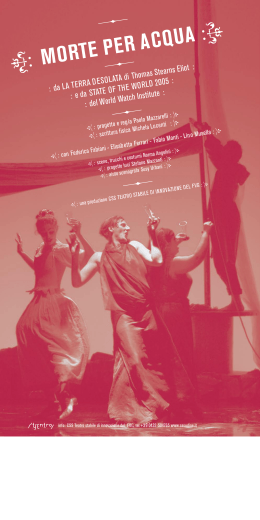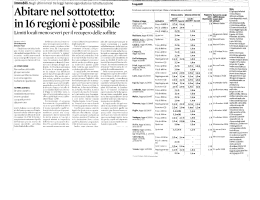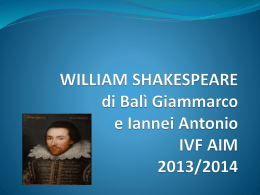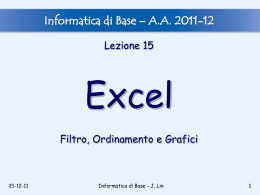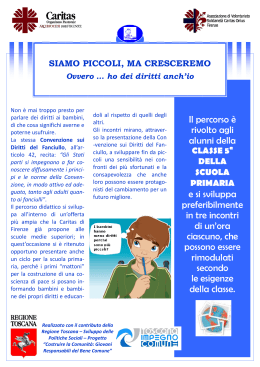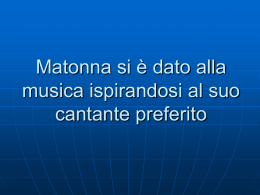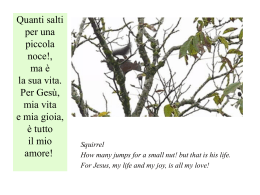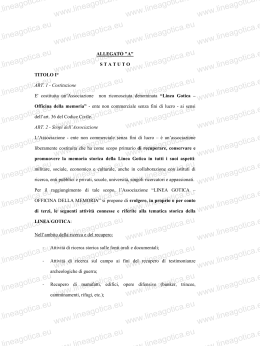1 The sound from the heart Vol. II Il suono dal cuore by Valentino Giacomin Illustrations Farhang Atefi 1 2 THE SOUND FROM THE HEART Il suono dal cuore Valentino Giacomin Illustrations Farhang Atefi Awakening Special Universal Education, Guroupur, Sarnath – Varanasi (India) – Email: [email protected] – Web: www.aliceproject.info Copyright 2008 - ASUE Alice Project All rights reserved. No part of this book may be reproduced by any means without the permission from the publisher. 2 3 Good heart, good health, good environment HeartMath, that was established in 1991 by Doc Lew Childre, has discovered that if someone has a coherent heart rhythm, it has a demonstrably positive effect on other people in close proximity to him or her (and the reverse is also true). Just think about how you feel in the presence of someone who is appreciative or caring, compared to being close to someone angry or frustrated.. That is: if your own heart rhythm is coherent, there is a greater chance that your environment will also behave coherently. That is: the health of your environment starts with your own health. That is: changing the world starts with you. McCraty explains, “With every heartbeat, information is supplied that affects our emotions, our physical health and the quality of our lives.” This means that feelings of compassion, love, care and appreciation produce a smoothly rolling—HeartMath calls it “coherent”—heart rhythm, while feelings of anger, frustration, fear and danger emit a jagged and capricious—”incoherent”—image. But this is more than a statistical difference. HeartMath’s research shows that a different heart rhythm leads to other chemical and electrical–even neurological--reactions in the body. McCraty says, “If you consciously shift your attention to a positive emotion, like appreciation or care, or if you allow your thoughts to return to the feeling of a cherished memory, your heart rhythm changes immediately.” Harold Kushner: Quando tu sei gentile con gli altri, non solo avviene un cambiamento in te, ma il cambiamento coinvolge l’intero universe/ When you are kind to others, it not only changes you, it changes the world. 3 4 The story of Lin the young monk La storia del giovane monaco Lin 4 5 “Did you clean your room, fetch water for the monastery, cure the sick monks and care for the entire Universe?” “Hai pulito la tua stanza; procurato l’acqua per il monastero; curato i monaci ammalati e pensato al bene di tutta l’ Umanità?” 5 6 “I cleaned my room, I fetched water for the monastery, I cured the sick monks, but I do not know how to care for the entire Universe!” “This is your homework for today!” “Ho pulito la mia stanza; ho procurato l’acqua per il monastero; ho curato i monaci ammalati, ma non so come prendere la responsabilità dell’intero universo!” “Questo è il tuo compito per oggi!” 6 7 “Caring for the entire the Universe? What does it mean?” Lin thought day and night. “Prendere la responsabilità dell’intero universo? Che cosa significa?” Lin pensò giorno e notte. 7 8 He asked a senior wise monk. “How can I care for the entire Universe?” The old monk replied, “Read my book on compassion!” “Please," asked the young monk. "Can I have your book!” The old monk gave Lin the book. Lin chiese a un Monaco anziano: “Come posso assumermi la responsabilità dell’intera Umanità?” L’anziano monaco rispose: Leggi il mio libro sulla compassione!” “Per favore, - chiese il giovane monaco – posso avere il tuo libro?” L’anziano monaco diede a Lin il libro. 8 9 Lin opened the book, but it was totally empty! “Where is the story?” he asked. “It’s in your heart!” replied the monk, while he carried on writing. “How can I read it?” asked the monk.“By caring for the entire Universe!” replied the old monk. Lin aprì il libro, ma era completamente vuoto! “Dov’ è la storia?” chiese. “E’ nel tuo cuore!” rispose il monaco, continuando a scrivere. “Come posso leggerla?” domandò Lin. “Prendendo la responsabilità dell’intero universo!” rispose il monaco anziano. 9 10 The young monk was baffled by the answer. He asked his Lord for inspiration. While he was meditating and praying, a cat entered his room and started to disturb him. Lin was annoyed and threatened the cat while he pulled it out of the room. La risposta lasciò Lin ancora più confuso. Chiese ispirazione al suo Dio. Mentre stava meditando e pregando, un gatto entrò nella stanza e cominciò a disturbarlo. Lin era molto contrariato e minacciò il gatto trascinandolo fuori della stanza. 10 11 Suddenly, the monastery gong sent an unpleasant sound throughout, all the way down to the villages and much further. “Who is striking the gong in such an aggressive way?” asked the monks. “Lin is fighting with the cat!” explained the Master. “His gong – mind is making an unpleasant noise!” Improvvisamente, il gong del monastero mandò un suono sgradevole che si diffuse ovunque: nei villaggi e anche oltre. “Chi sta suonando il gong in modo così aggressivo?” chiesero i monaci.”Lin sta combattendo con un gatto!” spiegò il Maestro. “La sua mente-gong sta emettendo un suono spiacevole!” 11 12 Lin tried to continue his mediation, but the cat came back. He yelled at it unable to control his emotions. Again, from the monastery gong came a horrific sound, like the barking of a mad dog. The sound disturbed the mind of the monks, of all the people around the monastery and even farther away. Lin tentò di continuare la sua meditazione, ma il gatto tornò. Lin lo cacciò gridando, incapace di controllare le proprie emozioni. Di nuovo, dal gong del monastero arrivò un suono orribile, come il latrare di un cane rabbioso. Il suono disturbò la mente dei monaci e di tutta la gente che viveva nei pressi del monastero e anche oltre. 12 13 The monks protected their ears from that dreadful noise. ”What is happening now?” they asked. ”Lin was not able to concentrate and now he is angry with the cat!” said the Master. I monaci si coprirono le orecchie per difendersi da quel suono pauroso.”Che cosa sta accadendo ora?” chiesero.”Lin non è capace di concentrarsi ed arrabbiato con il gatto!” disse il Maestro. 13 14 It was true. Lin was not able to concentrate on his meditation and he turned his attention to the cat. That was when he realized how skinny and skeletal it was! He felt shame for his previous behavior and pity for the poor cat. Era vero. Lin non era capace di concentrarsi nella meditazione e rivolse la sua attenzione al gatto. Solo allora si accorse quanto fosse scheletrico e malridotto! Provò vergogna per il suo comportamento e pietà per il povero gatto. 14 15 “My friend, you need help right away. Come, I will give my lunch and I will cure you. I will not leave you until you become healthy and happy! ” “Amico mio, tu hai bisogno di urgente aiuto! Vieni, ti darò il mio pranzo e mi prenderò cura di te. Non ti lascerò fino a che non sarai guarito!” 15 16 The monastery gong now sent off a sound again but this time it was a nice, peaceful, pleasant sound. “Lin is caring for the cat!” smiled the Master. Il gong del monastero mandò ora un altro suono, ma questa volta era un suono dolce, piacevole e pacifico. “Lin sta prendendosi cura del gatto!” sorrise il Maestro. 16 17 Lin brought the cat outside the monastery. There he found many other cats and animals that needed his care and help. There were also beggars with tattered clothes and wounds all over the body. He was so deeply moved by the suffering of the animals and human beings that he prayed, “May all the suffering of the animals, human beings and ghosts of the entire Universe come upon myself. May all creatures find happiness and the causes of happiness. May I be able to free them from their physical and mental misery teaching them how to live in equanimity, free from attachment and aversion ! ” Lin portò il gatto fuori dal monastero. Lì trovò molti altri gatti e animali che avevano bisogno di essere curati e aiutati. C’erano mendicanti vestiti di stracci e piaghe in tutto il corpo. Lin si commosse alla vista delle sofferenze degli animali e degli esseri umani e pregò: “Prendo su di me tutte le sofferenze degli animali, degli esseri umani, spiriti e dell’intero universo. Possano tutte le creature trovare la felicità e la sua causa. Possa io essere in grado di liberarle dalle loro sofferenze fisiche e mentali insegnando loro l’equanimità, la libertà dall’attaccamento e dall’avversione!” 17 18 The monastery gong sent a melodious, heavenly sound that astounded the monks, and made the villagers wonder about the miracle of such marvelous music that brought peace to the mind and gave strength to their bodies. Il gong del monastero mandò un suono melodioso, celestiale, che stupì i monaci e la gente dei villaggi che si domandarono quale miracolo avesse prodotto quella musica meravigliosa che non solo portava pace e serenità nella mente ma anche dava vigore ed energia al corpo. 18 19 “What is going on?” asked the monks and the villagers in wonderment. “This is the sound coming from Lin’s gong-mind. He is caring for the entire Universe!” explained the Master. “Che cosa sta succedendo?” chiesero i monaci e la gente dei villaggi, pieni di meraviglia. “Questo è il suono proveniente dalla mentegong del monaco Lin, che sta prendendo la responsabilità dell’intero universo!” spiegò il Maestro. 19 20 The monks understood that when intention/actions come from the heart, the gong – mind produces a celestial melody that brings serenity and love to the whole Universe. I monaci capirono che quando le azioni vengono dal cuore, la mente-gong produce una melodia celestiale che porta serenità e amore in tutto l’universo. 20 21 21 22 Buddhist saying If you light a lamp for somebody, it will also brighten your path. Lao-Tse, Chinese Philosopher: By the accident of fortune a man may rule the world for a time, but by virtue of love and kindness he may rule the world forever. Paramahansa Yogananda: Kindness is the light that dissolves all walls between souls, families, and nations. Mother Teresa: Kind words can be short and easy to speak, but their echoes are truly endless. Zoroastrianism: “Seek your happiness in happiness of all” Proverbio buddista Se si accende una lampada per qualcuno, illuminerà anche il vostro cammino. Lao-Tse, filosofo cinese: Con l'incidente di fortuna un uomo può governare il mondo per un periodo, ma nelle virtù di amore e di bontà può governare il mondo per sempre. Paramahansa Yogananda: La gentilezza è la luce che dissolve tutte le pareti tra le anime, le famiglie e le nazioni. Madre Teresa: Le parole gentili possono essere brevi e facile da pronunciare, ma i loro echi sono davvero infiniti. Zoroastrismo: "Cercate la vostra felicità nella felicità di tutti" 22 23 Matthew 22:37-39 CEV “Love the lord your God with all your heart, soul and mind. This is the first and most important commandment. The second most important commandment is like this one. And it is,” Love others as much as you love yourself” Satya Sai Baba “There is only one religion; the religion of Love. There is only one language; the language of the Heart. There is only one caste; the caste of Humanity.” Judaism "You shall not hate your brother in your heart . . . but you shall love your neighbor as yourself; I am the Lord." "The stranger who sojourns with you shall be to you as the native among you, and you shall love him as yourself; for you were strangers in the land of Egypt." (Lev 19:34). Matteo 22:37-39 CEV "Ama il Signore Dio tuo con tutto il tuo cuore, anima e mente. Questo è il primo e più importante comandamento. Il secondo comandamento più importante è come questo. Ed è, "amare gli altri come quanto ami te stesso" Satya Sai Baba "C'è una sola religione; la religione dell'Amore. C'è un solo linguaggio; il linguaggio del Cuore. C'è solo una casta; la casta dell'Umanità. " Giudaismo "Non odi il tuo fratello nel tuo cuore ... ma amerai il tuo prossimo come te stesso; io sono il Signore". "Lo straniero che soggiorna con voi sarà per voi come il nativo tra voi, e tu lo amerai come te stesso; poiché anche voi foste forestieri nel paese d'Egitto" (Lev 19,34). 23 24 Islam "Human beings can live in blessing and kindness so long as they love each other, show trustworthiness, and behave according to truth and fairness. Love is enduring and patient and kind. It judges all things with the heart, not the mind. And love can transform the most common place into beauty and splendor and sweetness and grace. For love is unselfish, giving more than it takes, being unconditional and unhampered by environment. Love never forsakes, it is faithful and trusting, truthful. It is guileless and honest and never deceiving. Love is Allah's Divine Gift." ("Islamic Digest") Buddhism "Never is this world appeased by hatred; it is only appeased by love - this is an eternal law." (Dhammapada, The Way of Righteousness - 3-5, 201). Daoism "Heaven would save those who have love." (By founder Lao Zi, Ch. 67). Islam "Gli esseri umani possono vivere in benedizione e gentilezza fintanto che amano, mostrano fiducia, dignità, e comportandosi secondo verità e correttezza. L’amore è duraturo e paziente e gentile. Esso giudica tutte le cose con il cuore, non con la mente. E l'amore può trasformare il luogo più comune in bellezza e splendore, dolcezza, grazia. Perché l'amore è disinteressato, dando più di quanto prende, essendo incondizionato e senza ostacoli per l'ambiente. L'amore non abbandona mai, è fedele e fiducioso, sincero, è innocente e onesto e mai ingannevole. E’ Divino regalo di Allah. "("Digest islamico") Buddismo "Non è questo mondo placato dall'odio, ma è placato solo da amore - questa è una legge eterna." (Dhammapada, la via della giustizia - 3-5, 201). Taoismo "Il paradiso salverà coloro che hanno amore." (Dal fondatore Lao Zi, cap. 67). 24 25 A human being is part of a whole, called by us the “universe,” a part limited in time and space. He experiences himself, his thoughts and feelings, as something separate from the rest — a kind of optical delusion of his consciousness. This delusion is a kind of prison for us, restricting us to our personal desires and to affection for a few people near us. Our task must be to free ourselves from this prison by widening our circle of compassion to embrace all living creatures and the whole of nature in its beauty. - Albert Einstein “If you want others to be happy, practice compassion. If you want to be happy, practice compassion.” - H.H. the Dalai Lama Un essere umano è parte di un tutto, chiamato da noi '"universo", una parte limitata nel tempo e nello spazio. Egli sperimenta sé stesso, i suoi pensieri e sentimenti, come qualcosa di separato dal resto - una specie di illusione ottica della sua coscienza. Questa illusione è una specie di prigione per noi, che ci limita ai nostri desideri personali e all'affetto per poche persone vicino a noi. Il nostro compito deve essere quello di liberarci da questa prigione, ampliando la nostra cerchia di compassione per abbracciare tutte le creature viventi e tutta la natura nella sua bellezza. - Albert Einstein "Se vuoi che gli altri siano felici, pratica la compassione. Se vuoi essere felice, pratica la compassione. "- SS il Dalai Lama 25
Scaricare
